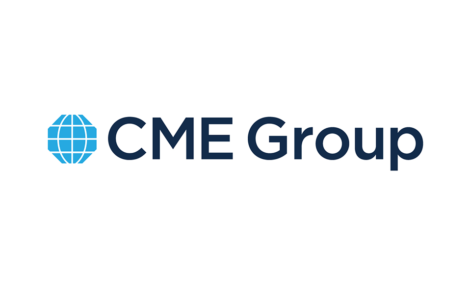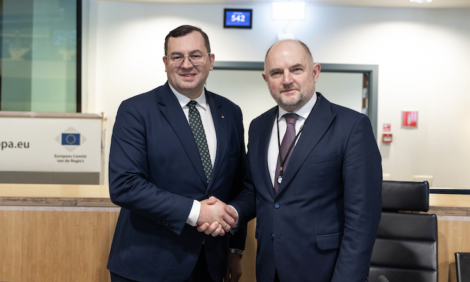



EC Orientation Debate on Animal Cloning
EU - The College of Commissioners held an orientation debate on 13 January 2009 regarding the cloning of farm animals for food production to see if the EU’s current regulatory framework is sufficient or whether additional action is needed.The Commission reconfirmed its commitment to a science-based risk assessment and to the importance of getting opinions and answers from EFSA on the remaining questions. To avoid potential trade issues with third countries, the Commission is not currently proposing new legislation banning or allowing animal cloning and is holding the existing status quo for now. However, the debate carries on between the Commission, the Parliament and the Council.
Summary of the College of Commissioners’ orientation debate on animal cloning
In the EU, according to available information, cloning of farm animals for food production is not yet used as a technique. Food derived from cloned animals or their offspring is not available on the market and is not expected to be available in the near future from third countries.
The Commissioners faced three possible directions leading into the debate, which were (1) to do nothing, (2) to maintain the status quo, i.e. leave food from cloned animals within the scope of the Novel Foods proposal and continue discussions with the scientific community regarding animal cloning, or (3) to propose an outright ban. The Commission reconfirmed its commitment to a science-based risk assessment and to the importance of getting opinions and answers from EFSA on the remaining questions. To avoid potential trade issues with third countries, the Commission is not proposing new legislation banning or allowing animal cloning and is holding the existing status quo for now.
Additionally, Health Commissioner Androulla Vassiliou will prepare a report in the next two months about the state of trade of animal clones and their products. At this time, the three EU institutions (Commission, Parliament and Council) are still discussing how clones and their products and progeny will be regulated.
Background
A 2008 Eurobarometer survey on animal cloning for food production showed that the majority of citizens hold negative views of cloning. 81 per cent of respondents feel that the long term effects of animal cloning on nature are unknown and that 84 per cent believe that not enough is understood about the long-term health and safety effects of using cloned animals for food. 58 per cent said that cloning should never be justified. The survey indicated a lack of understanding of animal cloning, as 49 per cent believed, incorrectly, that cloning involves genetic modification. Only 36 per cent of respondents had an understanding of animal cloning as a technique different from genetic modification.
Furthermore, the European Parliament’s resolution on 3 September 2008 called on the Commission to propose prohibiting for food supply purposes (1) animal cloning, (2) the farming of cloned animals or their progeny, (3) the placing on the market of meat or dairy products derived from cloned animals or their progeny and (4) the importing of cloned animals, their progeny, semen and embryos from cloned animals or their progeny, and meat or dairy products derived from cloned animals or their progeny, taking into account the recommendations of European Group of Ethics (EGE) and the European Foods Safety Authority (EFSA).
As with the European Parliament, the Commission considered the positions of the EGE and the EFSA. In their January 2008 opinion paper, the EGE expressed doubts about the ethical justification to clone animals for food supply. They do not see convincing arguments to justify the production of food from clones and their offspring. They recommend further studies on long-term animal welfare and the health implications for clones and their progeny.
EFSA, looking at limited studies on cloned cattle and pigs, concluded in their report that there is no indication that differences exist in terms of food safety between food products from healthy cattle and pig clones and their progeny, compared with those from healthy conventionally-bred animals. Surrogate dams were at risk for higher pregnancy failure, and given the increased size of the offspring, were more often subject to Caesarian sections. Their progeny, in the juvenile state, were more subject to adverse effects, often severely and with fatal outcome. Clones that survive the prenatal period were found to be normal and healthy. No environmental risk was foreseen, given the limited data.
Future Considerations
No specific EU policy measures related to the cloning of farm animals for food production purposes were proposed in the College of Commissioners’ meeting. Commission spokesperson Johannes Laitenberger said that “this is the time that the EU has at its disposal and it should use it to complete the preparatory work.”
Commissioner Vassiliou therefore also outlined that imports of reproductive material from cloned animals “should be regulated under existing legislation on animal health in order to avoid the production of offspring in the EU of animals cloned elsewhere”. She also reiterated the need for “further research & scientific work” in particular labeling, as well as the necessity to engage with the US (which has applied a voluntary moratorium on cloning for food since 2001) and others (e.g. Canada and Japan) in seeking cooperation and information exchange as limited data are available and the need for international consensus on such a sensitive matter for the public”.
Eurogroup for Animals, an animal welfare organization from all over Europe, expressed in a press release on January 2008 their regret about the Commission’s inaction on establishing regulations which ban cloning. They cite several cases where products of cloned animals had been unknowingly placed on the market and call for protection of animal welfare and consumer wishes.






